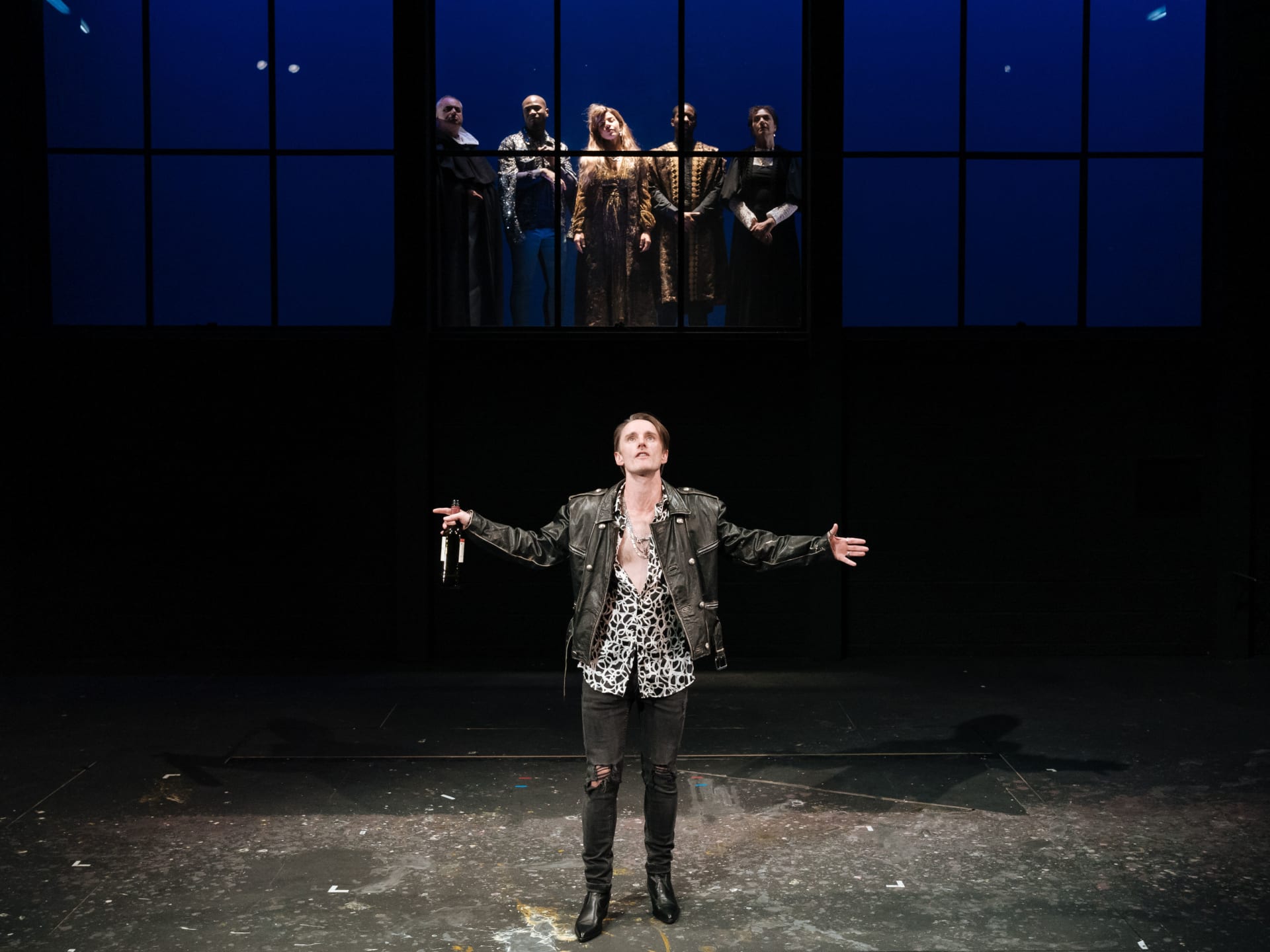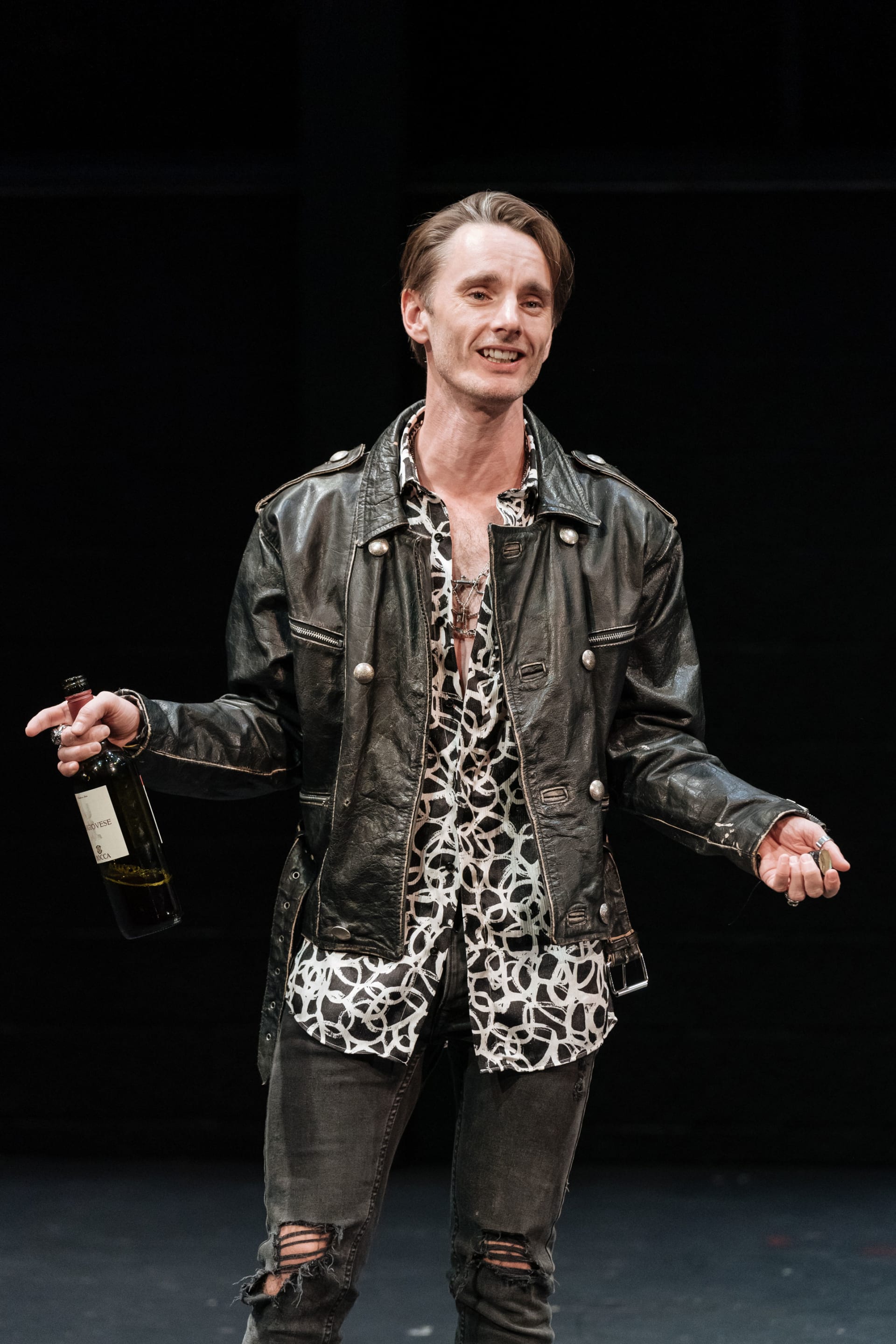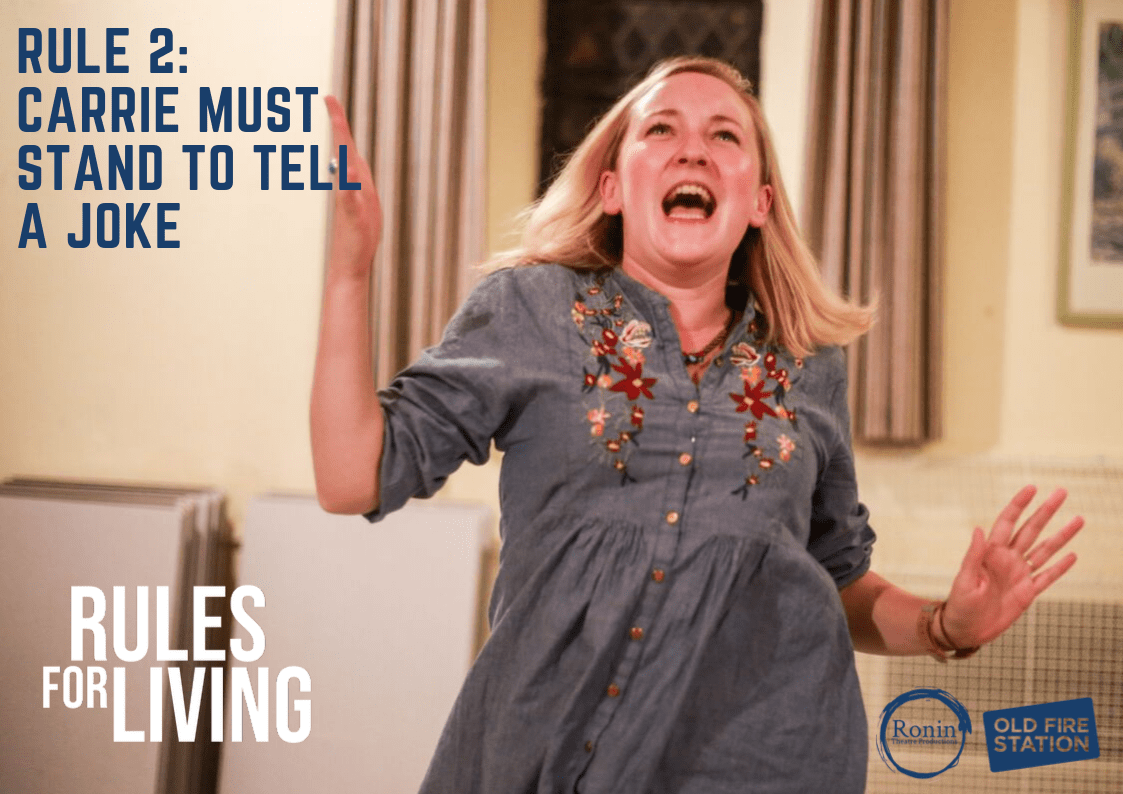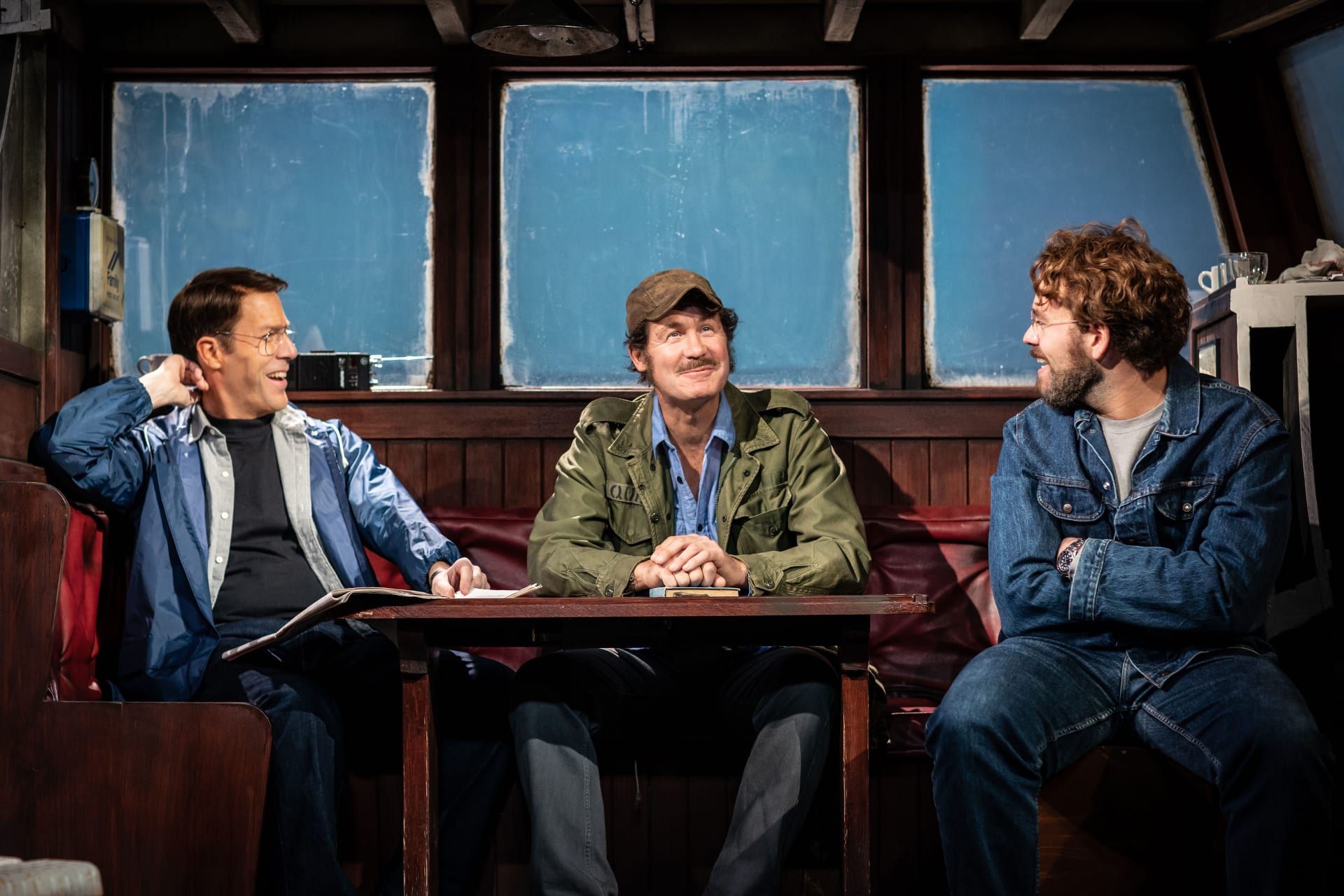I first encountered Dickie Beau when he brought Blackouts: Twilight of the Idols to Liverpool’s Unity Theatre in 2012. He depicted Judy Garland, lip-syncing to the saddening Judy Speaks! tapes the singer recorded at home in London shortly before her death at the age of 47. With Garland’s “don’t make a joke of me anymore” plea appropriately coupled with Beau’s clown-like makeup, it’s one of the best shows I’ve ever seen. But what did he think of the recent film about the Wizard of Oz star? “I’m a little biased,” admits the drag fabulist, “because I spent some time with Renée Zellweger as she was preparing. I got to like her very much.” He also liked her film, for which he says her natural fragility, sensitivity and sense of humour was fitting. “Having been in a couple of films now,” adds the actor, “I understand the massive scale of the job, so I think it was very successful.”
One such film was 2018’s Colette in which he played Wague alongside Keira Knightley. The casting director who chose him for that role, also believed he’d be suitable for Kenny Everett in Bohemian Rhapsody. His self-tape audition (with drawn on beard) went to 20th Century Fox. “It took quite a long time to hear back, but they gave me the part.” So, he appeared opposite Rami Malek, as the Capital Radio DJ who first played that six-minute Queen classic on the radio. After getting the job, he says, he spoke to Ian McKellen (“I’m dropping names left, right and centre here, I’m so sorry”) about the difference between acting for stage and screen. “He said in the theatre, as an actor in front of the audience in that direct moment, you have the lion’s share responsibility for telling the story. But on screen that is not primarily the actor’s responsibility because there are so many other people at work. That helped me relax.”
Three years ago, I watched Matthew Floyd Jones as the same character in cabaret musical Royal Vauxhall. “I love Matthew,” he says of the Frisky & Mannish pianist, “and I missed that.” They didn’t compare Kenny notes, I learn, nor have they even chatted to each other about their portrayals “because I haven’t seen him for ages. I hope he’s not angry with me that I got that part in the film. I bet he was brilliant as Kenny Everett, wasn’t he?” I tell him all three members of the cast were great, though the names of the other two escape me. “Wasn’t Sarah Louise-Young Princess Diana? She’s brilliant.” Do you just know these people, I ask, from moving in the same circles for a while? “It is a bit of a community, I suppose, the cabaret-live-art-performance scene.” Backstage at mixed bill nights, in minute dressing rooms, “you’re more or less getting dressed on top of each other, so you get to know each other pretty well, when you’re sitting there in your underwear putting your face on.”
We speak a few days after I’ve seen him at Hampstead Theatre, in the title role of Jordan Tannahill’s Botticelli in the Fire, the first time he’s been the lead in a play. He’s done a show the night before too so is currently “reclining”, he says before chuckling. There’s a slight pause when I ask where playing the Italian painter places on the challenging scale. Then, “yeah, it’s quite high, Sam. You saw it, it’s a brilliant part but it is hard. It takes a lot of energy and emotion.”
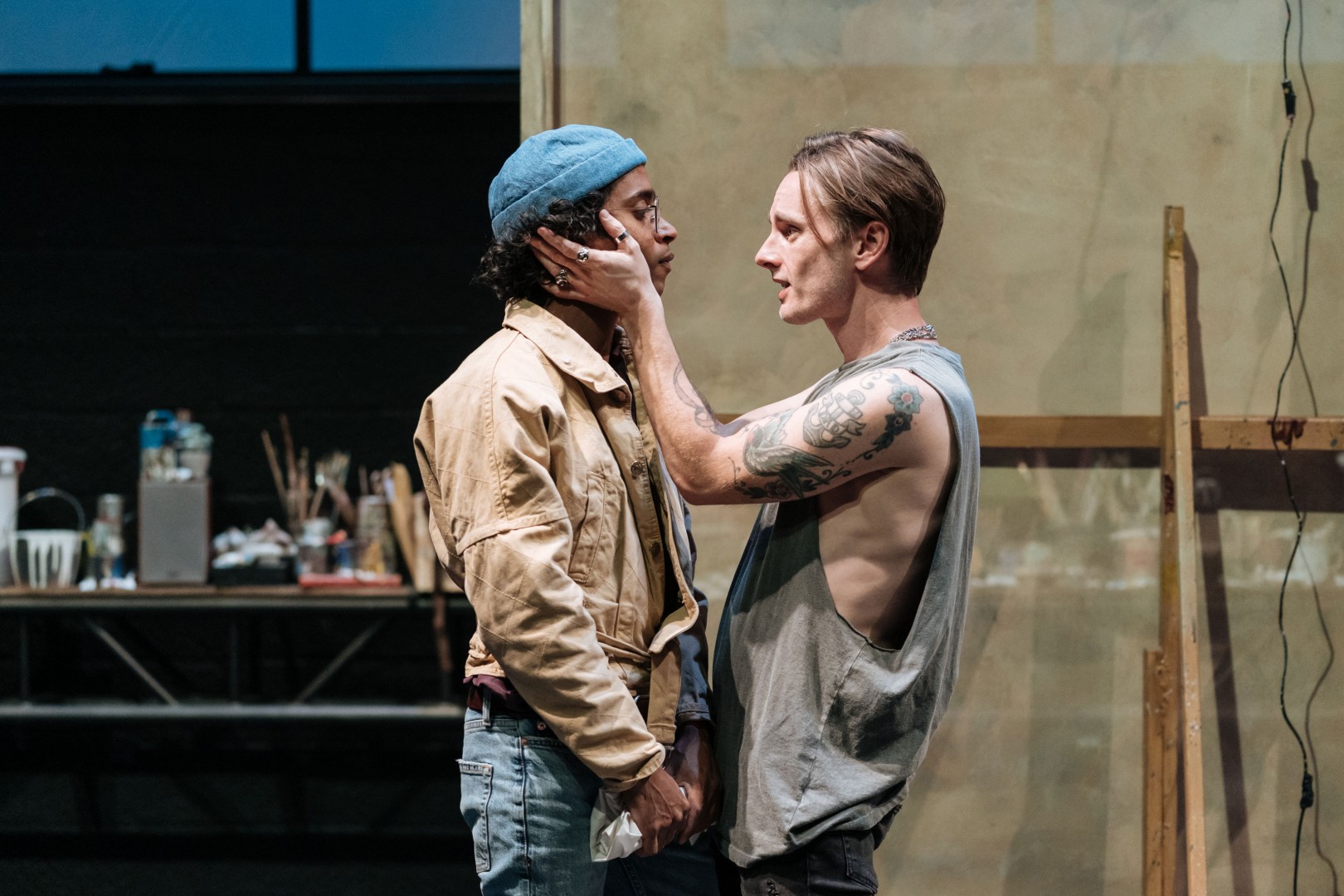
We’re presented with a Sandro Botticelli who will have sex with men (namely Leonardo da Vinci) and women (Clarice Orsini), the latter relationship providing a rather amusing oral sex scene courtesy of Sirine Saba’s noises. “In Florence at that time,” I’m told, “nearly all men were accused of sodomy one time or another. In other words, they were all at it with each other – and by all accounts they still are in Florence.” This was probably in part due to “the limits on heterosexual interactions”, he resumes, comparing it to prison where a man may well engage in same-sex activity despite not doing so outside of jail. “That points to the fact sexuality is more fluid than we, in our culture now, allow for it to be.” While people like to put others in boxes, he likes that his character can see something in front of him, find it sexy, and “give it a go”. Beau “basically thinks of himself as a gay man”, but the play’s helped him recognise that “maybe there are aspects of my attitudinal position that could afford to be questioned.”
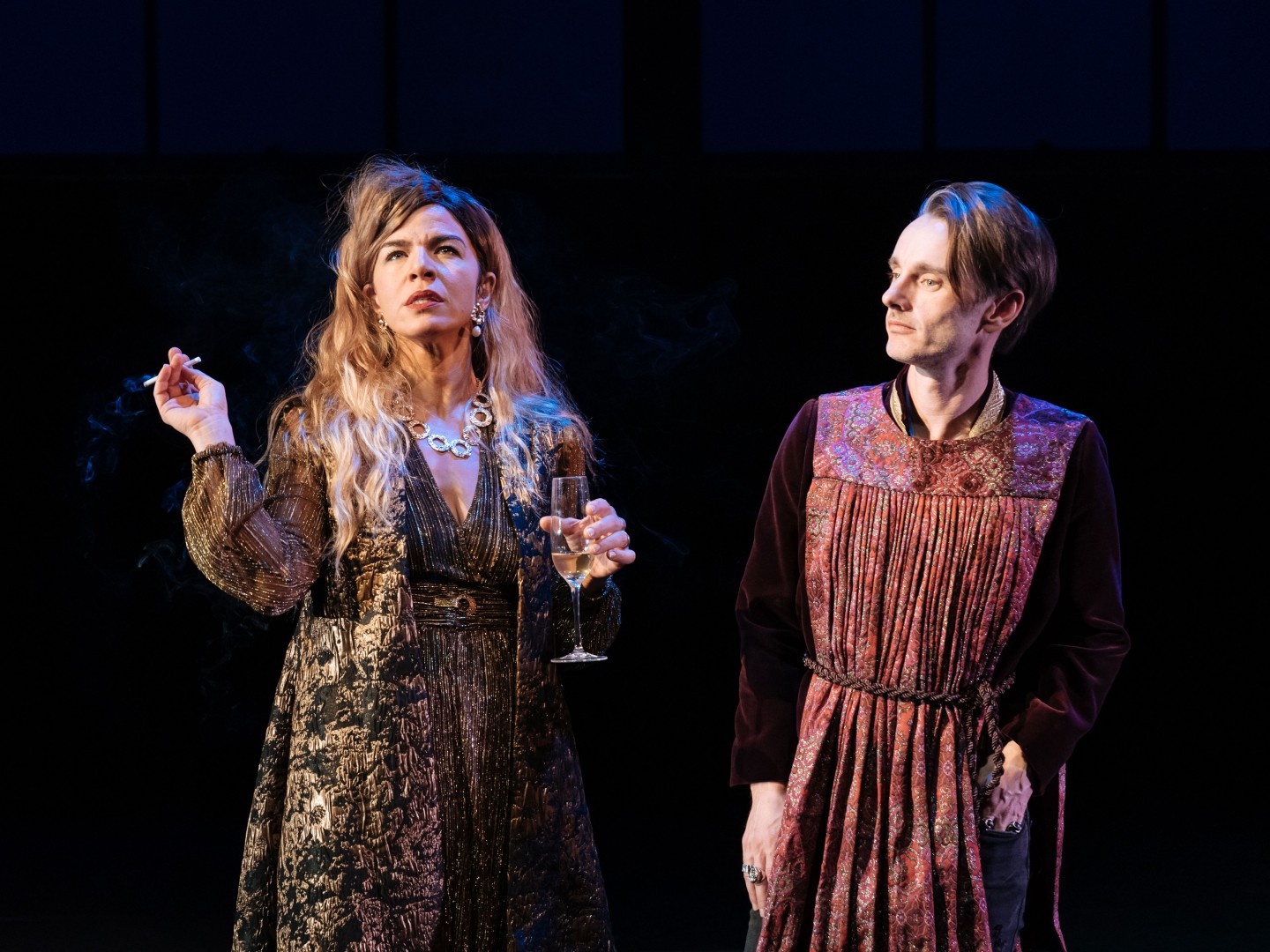
Tannahill’s piece is a queering of history, “a thread that runs through nearly everything I’ve done in one way or another”, the actor says, going back to Blackouts where he also used Marilyn Monroe’s final interview, given to Life magazine’s Richard Meryman. “That was not a straightforward biography of Marilyn Monroe or Judy Garland, it was a fabulation, like Krapp's Last Tape in reverse. It was queering history through the prism of an imagined future; imagining myself in 50 years, remembering encounters I’ve had in my head with Judy and Marilyn, using the memories of Richard Meryman, as a study of some of the themes I was interested in at the time – icons in exile, addiction, celebrity and identity.” More recently his show, Re-Member Me explored the “cultural phenomenon of Hamlet through a queer lens. So I felt a lot of affinity with what Jordan had written in that sense. I appreciated all the anachronisms and the idea of interrupting the givenness of historical representation. He was very keen not to write a museum piece and there’s something significant about the possibility of queering nostalgia. Nostalgia usually has a conservative function where people lament that things aren’t the way they used to be. Looking back, one can also use [it] to point to a way things could be.”
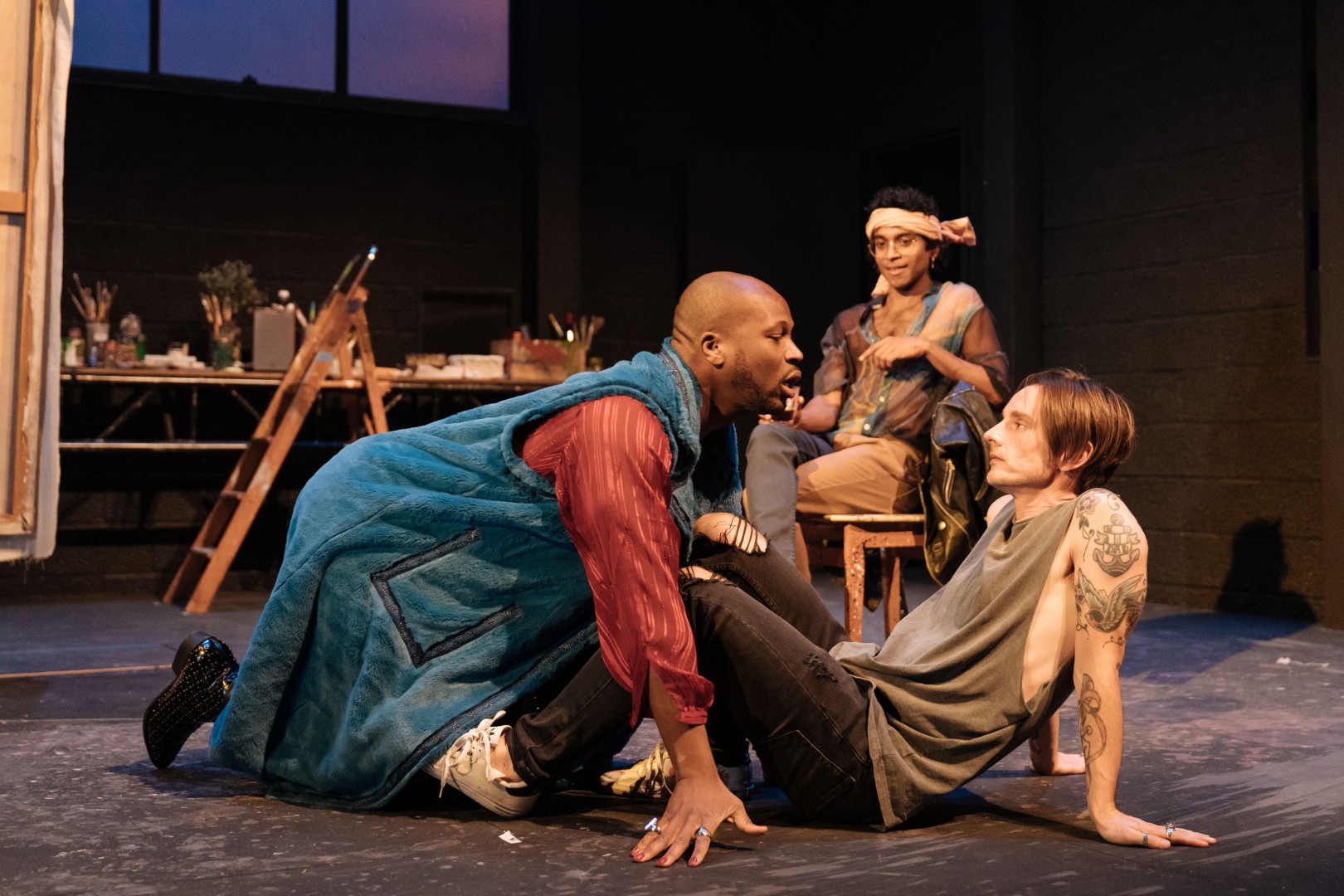
Will it tour after the Hampstead? “I don’t know how those things work really. I would love it to have a further life but there are so many conversations that I’m not a party to.” He has still got over three weeks of it to go. “I think my body will need a little rest after, it’s no bad thing that we wouldn’t be continuing immediately. But I’ll keep my fingers crossed.” Elsewhere he’s about to appear on screen again, in Chasing Chaplin as Roddy McDowall, he’s taking Re-Member Me to Hong Kong in February, and developing Wikileaks: The Ballet and solo performance work Stella! “They’re might be a couple of other acting things in the mix,” he says, “it sounds quite busy, doesn’t it?” Indeed – when will he find time for Renée and Ian?
Botticelli in the Fire is at Hampstead Theatre until 23 November.

